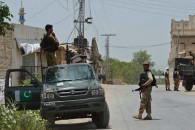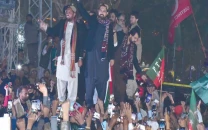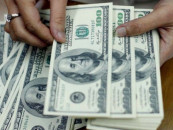Undoing prejudices: De-sexing the fairer sex
Workplaces are not sensitised to women, crude jokes are often cracked in newsrooms.

Workplaces are not sensitised to women, crude jokes are often cracked in newsrooms. PHOTO: FILE
“If a male anchor wants high ratings, he has to work hard, whereas a woman gets 50% of the ratings just for being a woman,” declared Saleem Safi at the 2nd National Conference on Gender and Media. As the female panellists, Quatrina Hossein and Munizae Jehangir shook their heads and protested the sexism of the comment, the crowd of participants – mostly male journalists – burst in applause.
The 2nd National Conference on Gender and Media was hosted by the White Ribbon Campaign Pakistan at Serena Hotel, Islamabad, on International Women’s Day to encourage sensitive and balanced depictions of women in print and electronic media. The campaign’s emphasis lies on sensitising men to women’s right and violence against women, with the optimistic assumption that educating men would lead them to behave better towards the fairer sex.
There were spirited discussions on the problematic portrayal of women in television dramas and advertisements, with much ire directed at the mega-hit Pakistani drama Humsafar. Panellists lambasted the dichotomy of women in TV dramas: the eastern woman who was always helpless, tragedy-struck and exploited and the westernised damsel who does not care about any local values. Talat Hussain, one of the more eloquent speakers at the event, said “The mainstream Pakistani women – teachers, women running SMEs – never get portrayed.”

Fahd Hussain brought much clarity to the issue when he spoke about the media’s “race to the gutter”, highlighting their obsession with appealing to ‘the base’ to get ratings. As a result, he noted, they try to show what the ‘awaam’ wants, rather than what it should see. According to him, this was one of the reasons for the unrealistic portrayal of women on TV.
But if there was one thing the conference highlighted, it was how far we are from a gender-sensitised media or society, with panellist after panellist blundering into sexist, even misogynistic commentary.
Beena Qayyum, who sensationally presented gruesome details of rape incidents and acid-throwing without having any larger point to make, was the worst offender. While talking about the abuse women suffer in marriage, the Crime Scene producer declared “Men are to blame. Women are equally to blame.” Though she qualified her statement by adding that it was because women did not stop the abuse the very first time it happened, would a gender-sensitised person shift the responsibility of crime on the victim? This attitude is what makes it so hard for rape victims to get sympathy, or indeed, justice – they are routinely portrayed as somehow responsible for what happened to them.
Those who stuck to rhetoric fared better – many an ambassador and ambassador’s wife came on stage, mumbled something soothing and vaguely agreeable and shuffled off again. But those who veered from empty platitudes and tried to express their real perceptions of the gender situation, quickly dug themselves into holes. Such was the case with Saleem Safi, whose truthfully expressed sentiment about female anchors popularity caused ill-will from the women on stage.
Mohammad Malik while taking a more politically correct line, expressed some sympathy for Safi: “The bias is not deliberate; we lack knowledge. We come from set-ups in which we’ve seen women in certain roles and we haven’t de-sexed them.”
Malik acknowledged that workplaces were not sensitised to women, and spoke about crude jokes often cracked in newsrooms. In a neat obfuscation of power roles, he begged women to show sympathy to men, educate them, and force this issue as a priority on people. Ironically, he also ended with a joke that some women might find demeaning: “Please show us sympathy; you’ll have your revenge when you get married.”
Seems like there’s no escaping gender stereotypes.
Published in The Express Tribune, March 11th, 2013.


















COMMENTS
Comments are moderated and generally will be posted if they are on-topic and not abusive.
For more information, please see our Comments FAQ